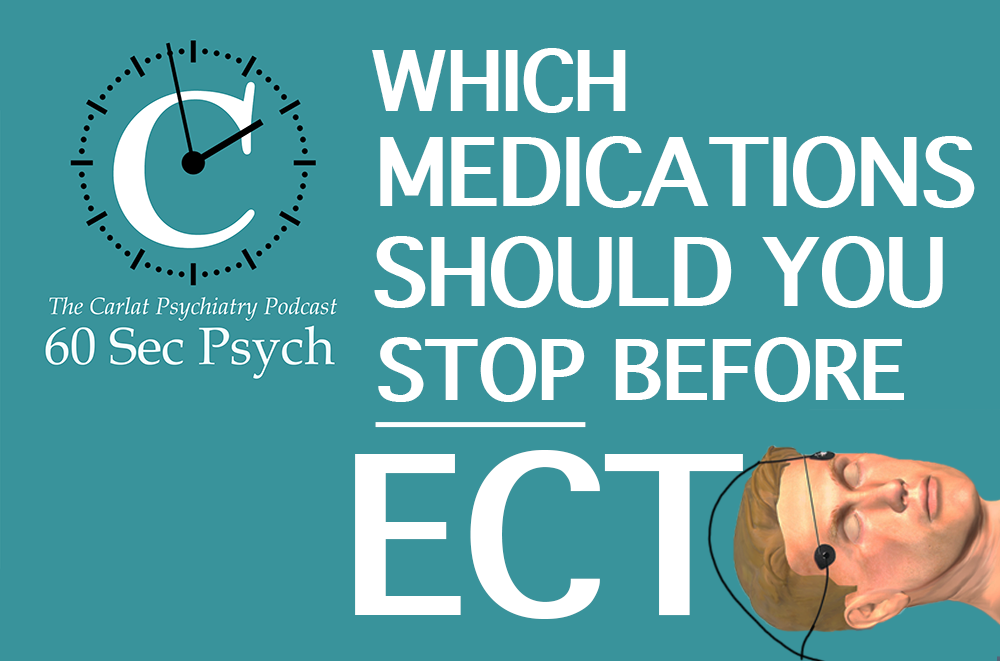Electroconvulsive therapy (ECT) depends on the seizure threshold, so you don’t want to throw that off before starting it. Anticonvulsants and benzodiazepines are concerning, as are antidepressants. Although bupropion has a notorious risk for seizures, a recent meta-analysis of all antidepressants found buproprion’s risk was about average with the newer XL formulations and lower dose range, while the tricyclic clomipramine had the highest risk of seizures. [Link]
Published On: 8/1/2020
Duration: 1 minute, 58 seconds
Transcript:
ECT depends on the seizure threshold, so you don’t want to throw that off before starting it. Anticonvulsants and benzodiazepines are concerning, as are antidepressants. Although bupropion has a notorious risk for seizures, a recent meta-analysis of all antidepressants found buproprion’s risk was about average with the newer XL formulations and lower dose range, while the tricyclic clomipramine had the highest risk of seizures.
Today’s study from the Journal of ECT looked at 550 patients through a chart review to see how their psych meds affected the seizure threshold and seizure duration. Although the study lacked controls, it answers some questions about feasibility as these patients were all continued on their psychotropics unless it was lithium. Lithium is traditionally discontinued before ECT because it contributes to the cognitive side effects.
Only the tricyclics were associated with a change in seizure threshold, and it was a dose-dependent effect. There was no meaningful change in EEG seizure threshold or duration of ECT with benzos, anticonvulsants, bupropion, stimulants.
The bottom line: This study calls to question the wisdom of current ECT guidelines, which recommend stopping anticonvulsants and benzos before ECT.
Got feedback? Take the podcast survey.


_-The-Breakthrough-Antipsychotic-That-Could-Change-Everything.jpg?1729528747)



